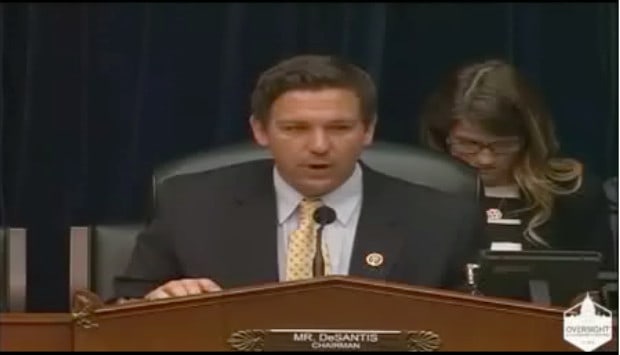Grid Protection Bill Passes TX Senate Natural Resources Committee & U.S. House Holds Hearing on EMP

Austin, TX: On April 14 the Texas Senate Natural Resources Committee passed Senate Bill 1398 which will require ERCOT (Electric Reliability Council of Texas) to conduct a study on the probability that the Texas electrical could survive an Electromagnetic Pulse Attack. The legislation emerged as the Federal government is taking more steps to protect itself in light of increasing awareness of EMP threats. This includes the recent move to secure military communications assets in the EMP protected Cheyenne Mountain facility in Colorado. Though the military is protecting itself there are no comparable precautions from private utility owners to protect civilian energy generation.
The original language in TX Senator (District 2) Bob Hall’s bill called for higher protection standards that account for current threat assessment. The version that passed acknowledges the threat but was watered down to a study after threats of utility industry resistance. The bill will go to the Texas State House next.
This development comes on the heels of a congressional hearing on the EMP threat, convened [earlier this week] by the House Oversight and Government Reforms Committee’s subcommittees on National Security and the Interior, during which Members of Congress heard from key experts on the U.S. electric grid’s vulnerability to EMP events, and needed congressional action to harden the grid against such threats. The hearing can be viewed here: http://oversight.house.gov/hearing/the-emp-threat-the-state-of-preparedness-against-the-threat-of-an-electromagnetic-pulse-event/
The witness panel – consisting of Dr. Peter Vincent Pry of the Task Force on National and Homeland Security; Dr. George Baker, Professor Emeritus, James Madison University, and Mike Caruso of ETS-Lindgren – in addition to conveying the real and urgent nature of the EMP threat to the electric grid, emphasized that hardening the grid is both technologically and financially feasible. The witnesses also discussed steps that Congress could take to begin addressing this issue, including: 1) passage of the Critical Infrastructure Protection Act (CIPA), to require the Department of Homeland Security to include EMP as a National Planning Scenario; 2) Re-chartering the EMP Commission to serve again as a neutral group of experts to advise the federal government on this threat and monitor progress towards its resolution; and 3) addressing the problematic relationship between the Federal Energy Regulatory Commission (FERC) and the North American Electric Reliability Corporation (NERC), which thus far has enabled NERC to avoid hardening the grid against this known hazard.
Center for Security Policy President and CEO Frank J. Gaffney, Jr., commented:
“Committee passage of State Sen. Hall’s bill in Texas, and the House Oversight and Government Reform Committee’s recent hearing in Congress, are welcome indicators that legislators at both the federal and state level, in multiple states, are beginning to understand that the very real prospect of the U.S. electric grid being taken down indefinitely by an EMP event is arguably the single most important national security issue facing us today. We are encouraged by these developments and urge leaders in all branches of state and federal government to build on them by taking concrete, meaningful steps to secure the grid.”
